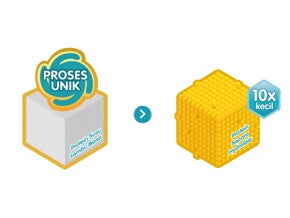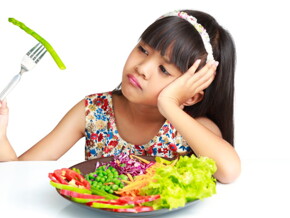
Essential Tips for Malaysian Parents
As parents, nothing is more distressing than seeing our children in discomfort. Indigestion, though often associated with adults, can affect kids too, causing pain or discomfort in the upper belly or abdomen. In Malaysia, where dietary habits can vary widely, understanding the causes, symptoms, and preventive measures for kids' indigestion is crucial for ensuring our little ones stay happy and healthy.
In this comprehensive guide, we'll explore everything Malaysian parents need to know about kids' indigestion, including its causes, symptoms, treatment options, and practical tips for prevention.
Causes of Kids' Indigestion
Kids' indigestion can stem from various factors, including:
- Health problems: Certain health conditions such as gastroesophageal reflux disease (GERD), food allergies, and gastrointestinal infections can contribute to indigestion in children.
- Lifestyle factors: Unhealthy lifestyle habits such as poor dietary choices, lack of physical activity, and irregular eating patterns can increase the risk of indigestion.
- Medications: Certain medications, such as antibiotics, nonsteroidal anti-inflammatory drugs (NSAIDs), and some asthma medications, can irritate the stomach lining and lead to indigestion in children.
Symptoms of Kids' Indigestion
Recognizing the symptoms of indigestion in children is crucial for early intervention. Common symptoms may include:
- Complaints of pain or discomfort in the upper belly or abdomen.
- Bloating and feeling full quickly during or after meals.
- Excessive burping or belching.
- Nausea and occasional vomiting.
- Diarrhea or constipation.
- Irritability or fussiness, especially during or after meals.
Parents should pay attention to these symptoms and consult a healthcare professional if they persist or worsen over time.
Treatment Options for Kids' Indigestion
Treating kids' indigestion often involves a combination of medication and lifestyle modifications. Depending on the severity and underlying cause, treatment options may include:
- Over-the-counter medications: Antacids or acid reducers may be recommended by pediatricians to alleviate symptoms of indigestion in children. However, it's essential to use these medications under professional guidance.
- Probiotics: Incorporating probiotic supplements or foods rich in beneficial bacteria can help restore balance in the gut and alleviate digestive issues in children.
- Dietary changes: Adjusting your child's diet can have a significant impact on reducing indigestion symptoms. Encourage them to eat several small, low-fat meals throughout the day, and limit their intake of spicy, greasy, or high-fiber foods.
- Hydration: Ensure your child stays well-hydrated throughout the day, as dehydration can exacerbate indigestion symptoms. Encourage them to drink water or herbal teas instead of carbonated or caffeinated beverages.
- Stress management: Help your child manage stress through relaxation techniques, such as deep breathing exercises, mindfulness, or gentle yoga. Stress can exacerbate indigestion symptoms, so creating a calm and supportive environment is essential
Preventive Measures for Kids' Indigestion
Preventing indigestion in children starts with promoting healthy habits and lifestyle choices. Here are some practical tips for parents in Malaysia:
- Encourage mindful eating: Teach your child to chew their food thoroughly before swallowing, as this aids in digestion and reduces the risk of indigestion.
- Serve balanced meals: Prepare nutritious meals that are rich in fruits, vegetables, lean proteins, and whole grains. Limit their intake of processed foods, sugary snacks, and carbonated beverages.
- Establish regular meal times: Create a routine for meals and snacks, and encourage your child to eat at consistent intervals throughout the day. Avoid skipping meals, as this can disrupt digestion and lead to indigestion.
- Promote physical activity: Encourage your child to engage in regular physical activity, such as outdoor play, sports, or family walks. Exercise promotes healthy digestion and helps prevent indigestion.
- Lead by example: Be a positive role model for your child by practicing healthy eating habits and lifestyle choices yourself. Involve the whole family in meal planning, grocery shopping, and cooking nutritious meals together.
By implementing these preventive measures and seeking timely medical advice when needed, parents can help their children maintain optimal digestive health and enjoy a happy, active lifestyle free from indigestion woes.
Kids' indigestion is a common digestive issue that can cause discomfort and disrupt daily life for Malaysian families. By understanding the causes, symptoms, treatment options, and preventive measures outlined in this guide, parents can empower themselves to support their children's digestive health effectively. Remember, a balanced diet, regular physical activity, and a nurturing environment are the foundations for preventing indigestion and promoting overall well-being in children.
Kids' indigestion is a common issue that disrupts daily life. By learning about its causes, symptoms, treatments, and preventive measures, parents can support their children's digestive health. Key strategies include a balanced diet, regular physical activity, and a nurturing environment to prevent indigestion and promote overall well-being.
Did you know that LACTOGROW PROBIO is the only formula milk for children with the probiotic L. reuteri*?
Specially designed for children aged 1 to 3, LACTOGROW PROBIO helps reduce constipation and supports tummy comfort, ensuring your child stays happy and healthy. Packed with high calcium and DHA, it provides essential nutrients for your child's growth and development.
Support your child's well-being with LACTOGROW PROBIO today!


























